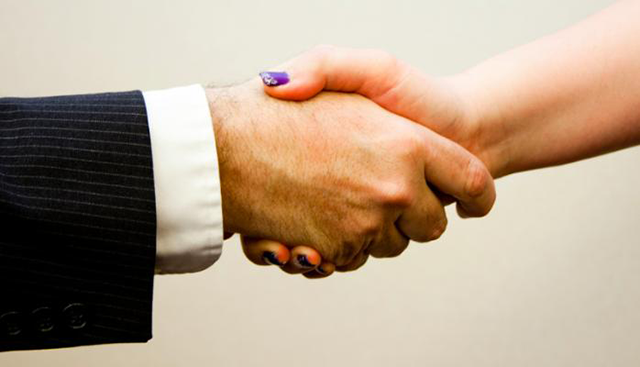
Do you sniff your hand after shaking someone else's?
This isn't a question I ever thought I'd ask myself, or you, but here we go, because, well...science.
The incredible Dr. Noam Sobel of the Weizmann Institute of Science ended up not only in a science journal this week, but in The Economist, with his findings. After handshakes, people are more likely to sniff their hands. But WHY? The piece ponders:
"Not all of Dr. Sobel’s observations make immediate sense. If the purpose of sniffing is to learn something about the person with whom you have just shaken hands then it would be expected that the hand sniffed was the one which did the shaking. That, though, was true only when the shakee was of the same sex as the shaker. Those who shook hands with someone of the opposite sex more often smelled the hand that had not done the shaking.
Dr. Sobel does not, at the moment, have any idea why that might be the case. Nor does he know which chemicals, carrying what information, are being transferred. He has though done a few preliminary experiments to show that molecules such as squalene, hexadecanoic acid and geranylacetone – known to be chemical signals in some other species – can indeed be passed on by a simple handshake."
It isn't surprising that scent drives behavior. But to what degree? In this piece in The New Yorker, Sobel asks:
“If I offer you a beautiful mate, of the gender of your choice, who smells of sewage, versus a less attractive mate who smells of sweet spice, with whom would you mate?”
I've been following Sobel's work as part of my own commitment to the Weizmann Institute and the American Committee for the Weizmann Institute of Science. The main reason for the success of Weizmann's mission of science for the benefit of humanity is the freedom that the scientists have to imagine and pursue their curiosity. Weizmann collaborates with the world's top cancer research and treatment facilities, and constantly makes spectacular strides, like this: blocking messages to stop cancer. As a futurist, I almost always feel that we are lagging behind our true potential as human beings. Weizmann is the one place on earth I've experienced that is truly decades ahead of its time, for the benefit of all of us.
Still, I hope I never see anyone sniffing their hand after shaking mine. And I'm sorry if I've ever gotten my squalene, hexadecanoic acid and geranylacetone on you. I had no idea.
Rita J King is the EVP for Business Development at Science House, a cathedral of the imagination in Manhattan focused on the art and science of doing business. She is a strategist who specializes in the development of collaborative culture by making organizational culture visible so it can be measured and transformed. She is a senior advisor to The Culture Institute in Zurich, Switzerland, and a Fellow at the Salzburg Global Forum. She is a Weizmann Advocate for Curiosity. She makes Mystery Jars, is the creator of Treasure of the Sirens, writes about the future for Fast Company and invents story architecture, characters and novel technologies for film and TV as a futurist for the Science and Entertainment Exchange. Follow@RitaJKing on Twitter.
